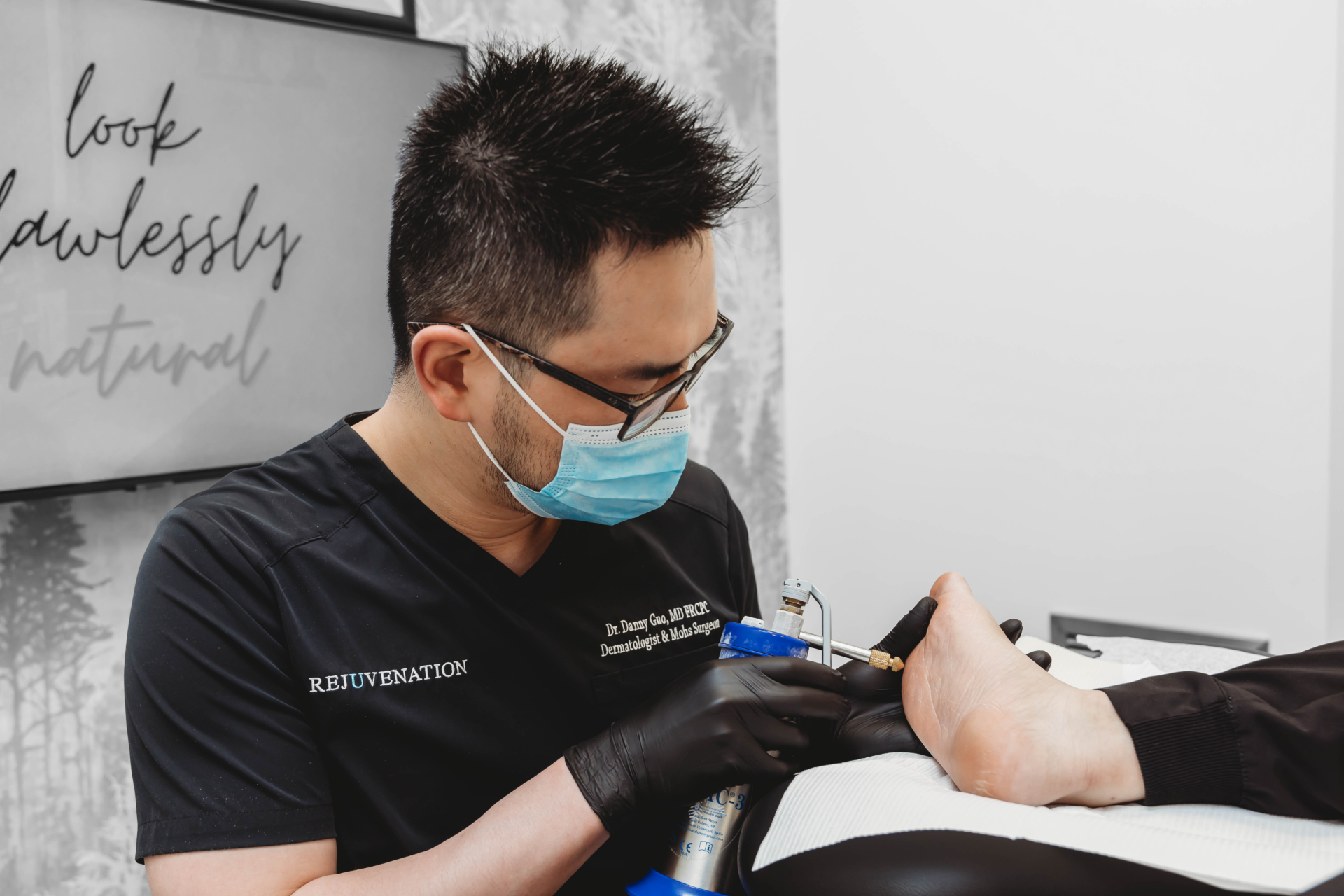‘It’s like I’m walking on a pebble!’ is one of the most common complaints I hear from patients with plantar warts. They are not going to hurt your health or shorten your life but they sure are very common and can be annoying as heck! So, let’s talk about what they are and what we can do about them.
What Are Warts and How Do You Get Them?
Warts are superficial infections of the outermost layer of your skin by a family of viruses called Human Papillomavirus (HPV). The most common way to acquire HPV is through direct physical contact with skin already infected with the virus. This can happen by touching another person’s wart, sharing vectors that can transfer viral particles from one person to another like shoes or towels, or self-spreading habits like picking your own warts.
How Do You Spot a Wart?
Warts come in many shapes and sizes. With more than 100 types of HPV, it can show up anywhere on your skin, from your forehead to the bottom of your feet. Still, the most common type of wart is the plantar wart, which can be distinguished from a corn or a callus by 2 features: plantar warts push your natural skin lines apart and plantar warts have black dots in the middle. Genital warts, on the other hand, can appear as soft fleshy growths and are often mistaken for skin tags! Finally, flat warts are usually discrete and mostly present themselves as near flat pink lesions commonly on the face and the back of hands.
How Should You Treat Them?
During my training to become a dermatologist in Calgary, I saw many patients struggle with warts for years on end, being passed from one clinic to another after having unsuccessful treatments, trying and failing numerous home remedies, and even resorting to extreme measures like surgery and injected chemotherapy. Any board-licensed dermatologist will tell you that there are literally dozens of wart treatment options that we all had to memorize for our board exam. However, anytime there are multiple options available, you can bet that none of them are that good, at least when used alone. This is exactly why optimal wart treatment includes multiple modalities in frequencies no less than every other week. Some of my personal favourite treatment options include:
- Liquid nitrogen – This is far colder and more effective than store-bought freezing kits
- Localized chemical peels – This exfoliates dead skin tissues and loosens the wart. All our Rejuvenation dermatology clinics carry an excellent (and strong) wart cream making it a great option to start your treatment with!
- Electrosurgery – This can destroy warts and the blood vessels that feed them.
- Curettage – This is the good old fashion cutting method that can debulk warts.
- Duct tape or gorilla tape – This McGuyver option actually works by softening the wart but more importantly by preventing spread.
- Laser – This method is used as a last resort but can be quite successful in the right hands.
Click here to learn more!
Common Questions About Warts
Here are some common questions and myths for your interest!
I heard warts go away by themselves, can I leave it alone?
From a pure scientific perspective, warts are unlikely to hurt your health and will sometimes go away by themselves. However, from a practical perspective, certain types of warts are often uncomfortable and can persist for years! More importantly, while you are waiting for it to go away spontaneously, it can spread to other parts of your body or to other people. So sure you can leave it alone, but I don’t really recommend it.
If I don’t have any broken skin, then I probably won’t get warts, right?
Technically, if you have completely perfectly intact skin, then it is unlikely for the wart virus to be able to penetrate and infect. However, even microscopic impairments to the skin barrier can be enough for viral particles to pass through. Getting your skin wet, like at the pool or a public shower at the beach, can also impede your skin’s ability to prevent HPV infection. While having perfect skin can reduce your risk of warts, it is just impractical to expect that we have perfect skin all the time.
Do wart treatments hurt a lot?
Wart treatments can be uncomfortable but should not cause significant pain in most cases. Significant pain from wart treatment often results from aggravation of the normal tissue under the wart. By using the correct treatment methods and applying them with great care, discomfort can often be kept to a minimum.
Taking the Next Step
Not all warts are the same and patients certainly tolerate treatments differently. Whether you have a tiny little guy on the tip of your nose or a huge mosaic wart on your foot, come find me at my dermatology clinic in Calgary and we will come up with a skin care treatment plan that works for you. To make things a little easier our Calgary North location offers a wart clinic that allows you to see a dermatologist without a referral! If you’re in the area, please do not hesitate to stop by for a walk-in appointment.






